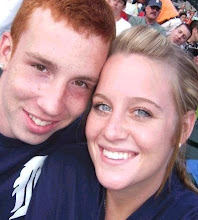Cory Havlicsek
Comp 106
November 18, 2009
Should A College Education Be a Requirement For Police Officers?
Police officers are needed in every society all over the world. Without some kind of neutral force keeping the peace, what would our world be like today? Murderers, rapists and other violent criminals would roam freely and commit crimes when ever given the chance. Yet, even though we do have police officers, as well as more sophisticated equipment to help them, there is still an ever climbing rate of crimes, chaos and dysfunction. Is it the police officers’ fault? Are they not doing their job effectively? Should police officers have to have a college degree to even be considered for employment?
These are all valid questions, but mainly would a college degree make a police officer more qualified for a job? Some officers beg to differ. Officer Dan Foley of the Wyandotte Police Station doesn’t think so. I had a chance to ask Officer Foley some questions in October of 2009, about what his thoughts where on the issue, and if Michigan requires any education after high school in order to become an officer of the law. Officer Foley told me that he has been a patrol officer for about twenty three and a half years now. I asked him if he had ever had any college education prior to becoming an officer and he told me that he has had one year of community college but never received a degree. I proceeded to ask him what college he attended and if it was required that he take college courses to become an officer? He replied that he attended Henry Ford Community College and no, it was not required at the time to become a patrol officer. Then I asked if it was required that new candidates have a college degree now to become a police officer. His exact words were, “no it is not required that you need a college degree to become a patrol officer now, but if you would like to be a higher rank than that of a patrol officer you do need a degree, whether it be an Associates or a Bachelors.”
Then I asked him a personal question, “Do you think that all officers should need a college degree to be employed?” He replied, “No I do not think all officers should need a college degree to be employed because what you learn on the streets cannot be taught in a class room or lecture hall.”
This is somewhat true, but wouldn’t a college degree help to prepare you better for what you encounter on the streets? Many people think so, including most of the students in my Composition 106 class. One of my survey questions I asked was, Do you think police officers should need a college degree to be considered for employment?, and 67% of the students who answered the question thought so. This isn’t exactly concrete proof that officers should need a college degree but it’s a great start. In fact, Plano city officials cited studies indicating that officers with college degrees have fewer discipline problems than those without. In a city like Detroit for example, with many problems in it’s past, could use a better reputation with its police officers.
Yes, it would most likely cut down on disciplinary problems if police officers did have a college education, but what about military experience? Some stations that have raised their requirements for an officer to four years of college have also accepted three years in the military as an alternative. This to me is another huge step in law enforcement. The main goal here is not to have super intelligent officers, but rather a more effective police officer that can identify a situation and asses a solution faster and safely. Military training is perfect for this kind of work. The theory here is that, since military training is so disciplined and rigorous, this would make our fellow police officers more disciplined and therefore we would have less civil cases against police officers’ abusing their authority and getting away with it.
A great example of this would be the Rodney King case, where he was beaten with batons and tasered multiple times for “resisting” arrest. The LAPD said that he was “resisting” arrest, but for those who have seen the video know for a fact that even if he wanted to resist arrest King couldn’t, because he was being struck over and over so he never had a chance to. An amazing fifty-six blows along with six kicks and two tasers is what those police officers felt was necessary to subdue King. A year later four officers were indicted on charges that involved violating King’s civil rights and were sentenced to thirty months in prison. Laurence Powell and Timothy Wind, two of those four officers, were college drop outs and never received any degree. Both never even went more than three semesters.
I believe that if all of these officers would have had any college background such as a Bachelors or even an Associates they would not have made this mistake that ultimately cost them their jobs. Even better, if they would have been in any branch of the military that receives disciplinary training, that would have changed the outcome a great deal. It would have given them the notion of when enough is enough and when subduing a criminal becomes assaulting and maliciously beating a criminal. Another fact is that only one of these officers was a rookie, so no one can argue the fact that it was a fresh young cop just abusing his/her authority. We are talking about people who have been on the force from anywhere between three years and fourteen years. Sergeant Cornell Koon the supervising officer at the King arrest was a fourteen year veteran, Laurence Powell one of the officers on tape was a three year veteran, Theodore Briseno a nine year veteran, and Timothy Wind a seven year veteran of the Kansas suburban police force, but a rookie on the Los Angeles Police Force.
Now, I’m not saying every officer who is on the force now needs to go back to school, but maybe the ones with the most reprimands should consider anger management classes and have to be evaluated before returning to active duty. Less than 5% of local police departments with more than 100 officers require four-year degrees, says Louis Mayo, executive director of the Police Association for College Education. If we can raise this to at least 20% I think this would significantly lower the number of police brutality cases while increasing the efficiency of protecting our citizens and people of America.
To answer some questions I asked in this paper, yes, I think it is the officers’ fault along with the department where they are employed. It is up to the department as well as the officer to know when protecting the community becomes destroying it. The officer should know better and the department should enforce harsh penalties for brutality mistakes. Yes, not every police officer is perfect, no one is, but they can at least try to cut down on such cases. I think we are more than capable of reducing police brutality but I believe it starts with the schooling prior to becoming a police officer. The more schooling required, the less discipline problems there are. The less discipline problems there are, the less brutality cases there are. With this comes an increase in safety on the streets as well as the on going feud between white officers’ and black criminals.
Thursday, December 10, 2009
Survey Responses
Wednesday, December 2, 2009
Tuesday, November 17, 2009
Misuse of apostrophes
Subscribe to:
Posts (Atom)





